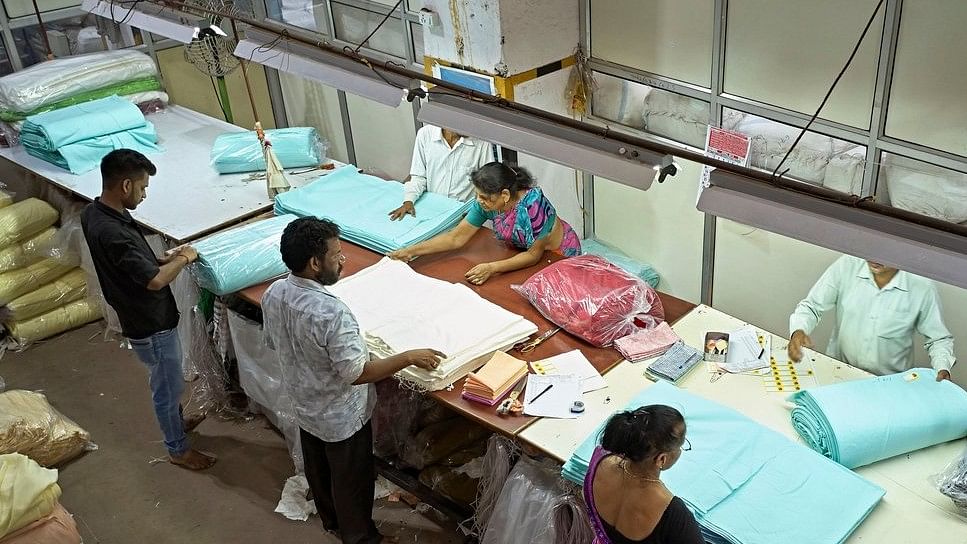
Workers fold and wrap textiles at a factory. (Representative file image)
Credit: iStock Photo
New Delhi: The National Human Rights Commission on Thursday urged businesses in the country to map supply chains to enhance transparency in operations, and integrate human rights processes within these chains.
It also asked the businesses to take accountability for human rights issues and regularly update and revise policies and regulations to ensure alignment with global human rights standards.
The suggestions were made at the core group meeting on business and human rights to discuss 'Safeguarding Dignity: Human Rights Due Diligence across Supply Chains'. At the meeting, NHRC Acting chairperson Vijaya Bharathi Sayani said the rights body is committed to taking up the issues of human rights violations at businesses with the concerned government authorities.
In her address, she referred to the recent notice issued to Amazon following reports of anti-labour practices at its warehouse in Haryana and discriminatory practices at Foxconn, a prominent manufacturer of Apple devices, in Tamil Nadu. She said such actions reaffirm NHRC's commitment to safeguarding human rights across diverse sectors, ensuring that everyone is treated with dignity and fairness.
Highlighting the importance of respecting human rights, including labour rights in business and their alignment with the Sustainable Development Goals (SDGs), she emphasised the need for businesses to integrate human rights protection into their organisational culture to operate sustainably and extend these principles throughout their supply chains.
NHRC Secretary General Bharat Lal highlighted the risks faced by gig workers who deliver food in the shortest possible time exposing themselves to road accidents and stressful conditions that also cause mental health issues.
He emphasised the critical need for improved human rights conditions in both the service and manufacturing sectors, stressing that inequality and exploitation should have no place in society. He also advocated for a competitive economy and business environment that anticipates and mitigates future barriers, ensuring that human rights are universally enjoyed by all.
NHRC Joint Secretary Devendra Kumar Nim said that in a globally interconnected economy, pursuing profit should never compromise fundamental human rights while emphasising on the collective responsibility to ensure that businesses respect and uphold the inherent dignity and rights of all individuals involved by implementing human rights due diligence (HRDD) in their operations.